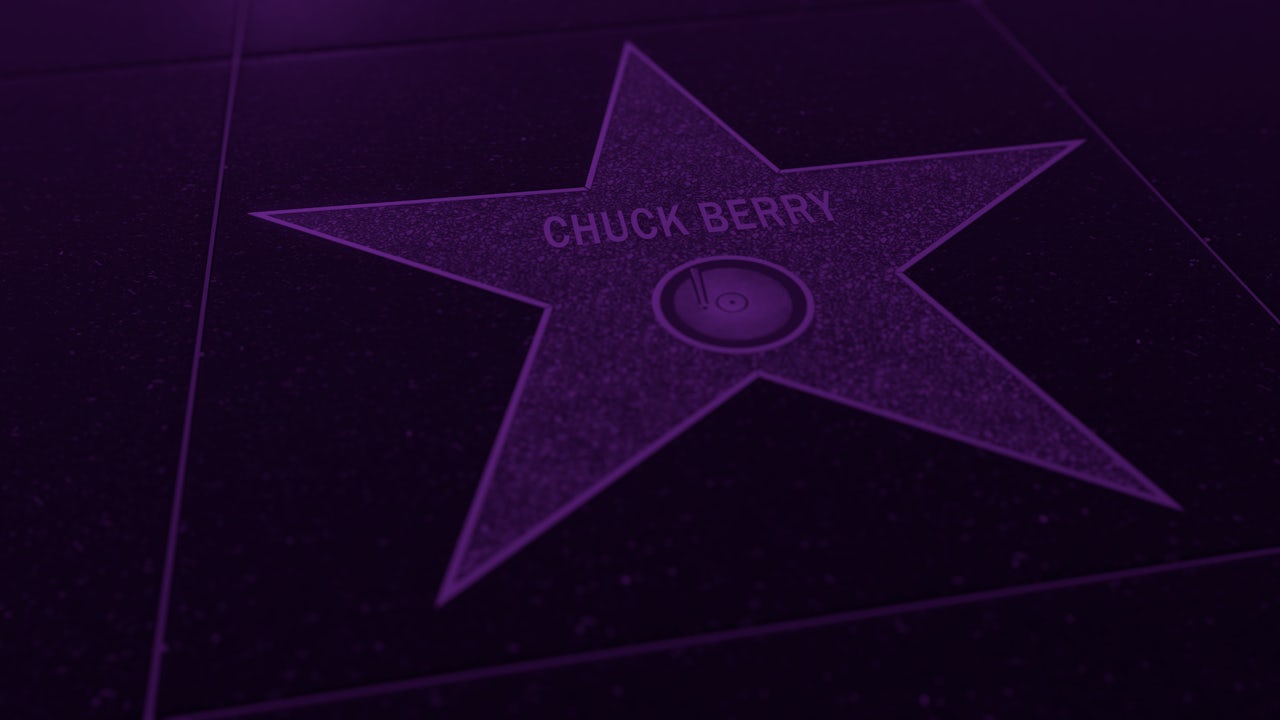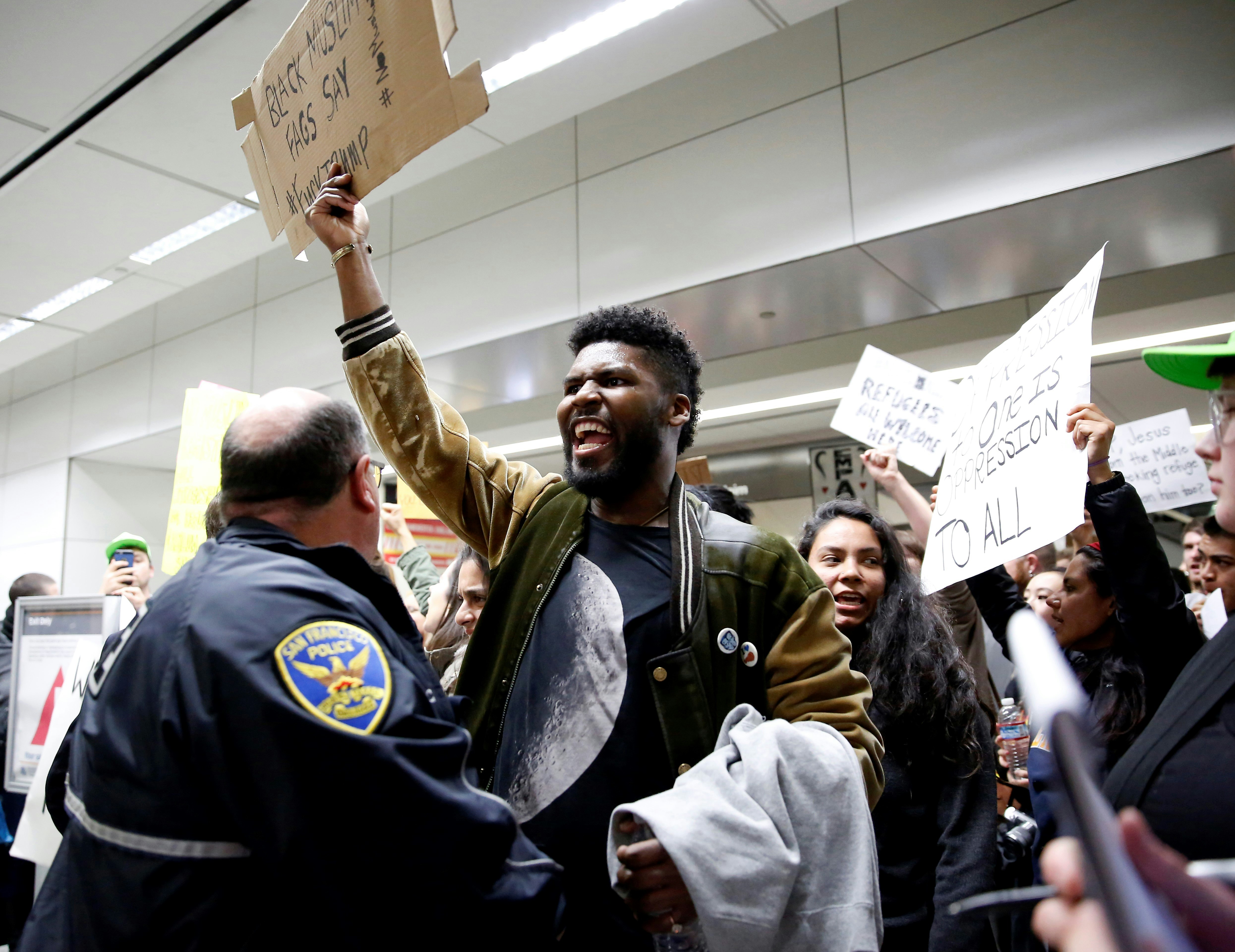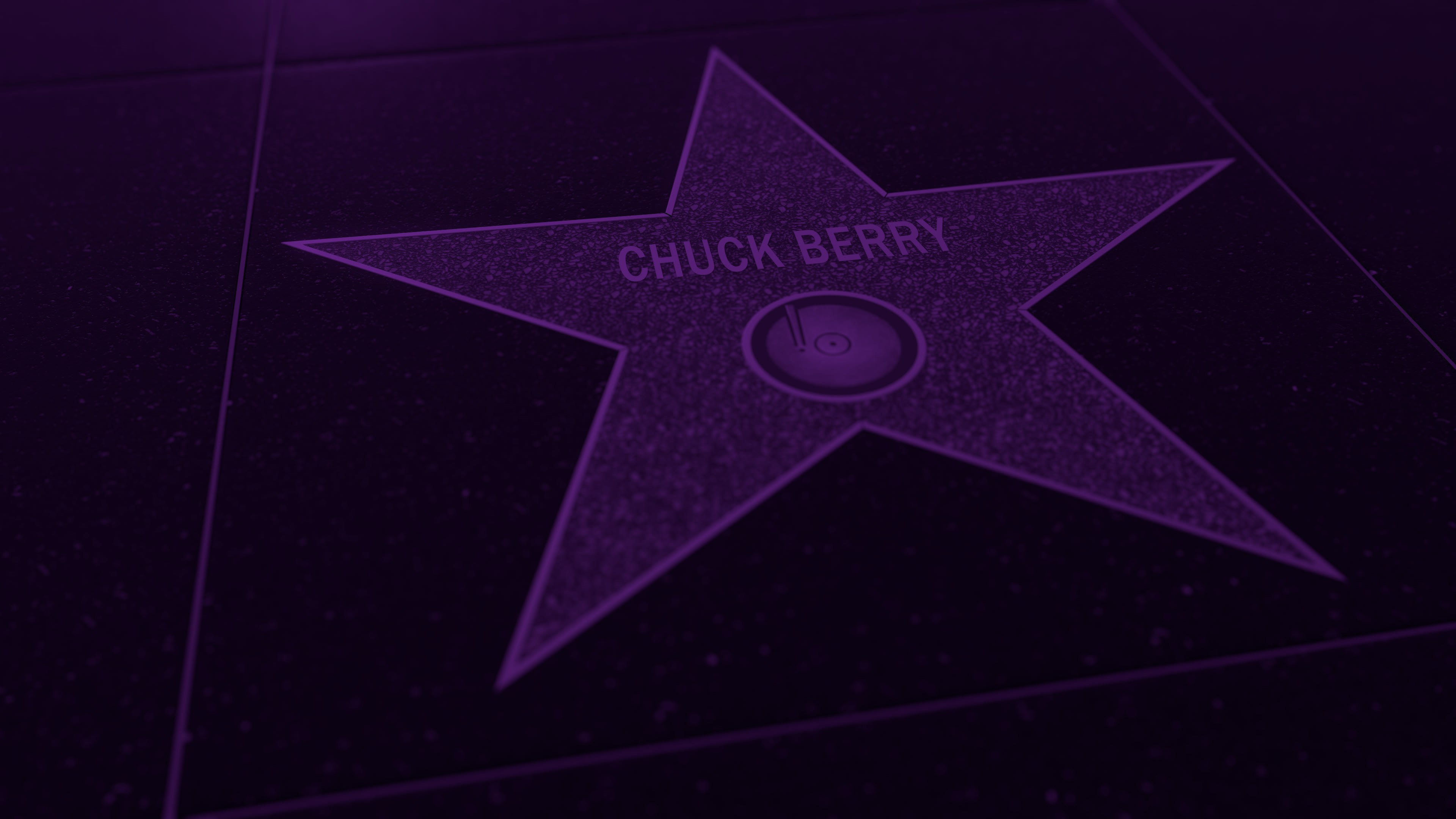IT HAPPENED
is a series reflecting on our memories of 2017, one month at a time, as we head into the new year.
I was 12 when I finally learned that black people invented rock music. It’s a lesson that’s somehow left out of middle school Black History Month curriculums, but my guitar teacher would not allow me to avoid the truth. He, a white guy, turned me onto the music of artists like Jimi Hendrix, Sister Rosetta Tharpe, and of course, the father, grandfather, and godfather of rock, Chuck Berry, whom I was first introduced to via his 1958 hit song “Johnny B. Goode.” Hearing it for the first time, I felt like I was being let in on a beautiful secret of American music history that had been denied to me by Top 40 radio, unknown by my white classmates who had been taught that The Beatles were the epitome of good music. I downloaded Berry’s greatest hits, and asked my mom to buy me a book of his sheet music and tabs. I spent the next year learning as many songs of his as I could, marinating myself in the legacy of rock music’s beginnings, dreaming of a rise to stardom not dissimilar to the titular character in that first song I heard.
I was 17 when I finally learned another truth about Berry. My friend told me all about the rock legend’s reputation in their shared hometown of St. Louis — how Berry, a celebrated son of the city, had nevertheless tarnished his reputation in sex abuse scandals, time and time again. In 1961, Berry was sentenced to five years in prison for transporting then-14-year-old Janice Escalanti across state lines and engaging in a sexual relationship with her. (He served 20 months.) In 1987, Berry was arrested for assaulting a woman at New York’s Gramercy Park Hotel. Three years later, he was charged with child abuse after a police raid on his house reportedly turned up pornographic videos of underage girls. (The charges were later dropped.) And, in perhaps his most damaging scandal, Berry was sued by several women that year after one of his employees at his Wentzville, Missouri restaurant revealed that he had been filming restaurant patrons in the women’s bathroom via a secret camera.
His guilt was never proven in court, but the fact that he reached a settlement with the women that is estimated to have cost him over a million dollars did little to support his claims of innocence. But though these abuses solidified Berry’s reputation as a bad guy, nothing could take away his standing as one of American music’s greatest treasures. From the 1980s to the year he died, Berry was showered with musical accolades and awards, including the Grammys’ Lifetime Achievement Award in 1984. In 1986, he was amongst the first ever batch of inductees into the Rock & Roll Hall of Fame.
When Berry died in March, the most reaction I could muster was a shrug. There’s something that feels inherently unkind about greeting someone’s death with indifference, but there’s no easy way to mourn a person who, as a human being, did little to earn widespread veneration. Celebrity deaths show us just how contentious a legacy can become, when generations with different standards are called to pay their respects. The world stopped when David Bowie died in 2016, but soon fans were tasked with reconciling their love for the artist and his work with the fact that he, at times in his adult life, slept with teenagers. When Playboy founder Hugh Hefner died in September, debates raged about whether he should be remembered as a champion of sexuality, or a desperately horny fool who treated his supposedly beloved Playmates like sex slaves. And perhaps most surprisingly, when cult leader and convicted murderer Charles Manson died in November, many obituaries were eager to venerate him as a cultural leader as they were to acknowledge that his influence stemmed from the gruesome crimes he committed.
The struggle to reconcile products of pop culture with the bad people who create them has become a major theme of 2017 as, following the widespread reckoning with the ubiquity of sexual harassment, we continue to wage wars over the ethics of consuming art made by known sexual abusers. Anyone can find an illegal copy of Louis CK’s cancelled film I Love You, Daddy online, but considering the premise — a television producer, played by CK, struggles with his teen daughter’s growing romantic relationship with his idol, a much older famous actor — supporting CK’s artistic expression seemed immensely beside the point. Something similar can be said about audiences of Woody Allen’s newest film Wonder Wheel, or people who pay to see Chris Brown or R. Kelly in concert. It was easy for me to cut work from these men out of my regular cycle of pop culture consumption, because there was so much else out there — no tears need be shed over artists who, in the scheme of things, were a blip in the cultural tradition.
That separation isn’t quite as clean cut when it comes to Berry. You can cut off the radio when “Maybelline” starts playing or easily avoid the few films and TV shows he appeared in over the years. But it’s impossible to escape his influence, even if you never directly consume his work. You can hear the jumping rock sound Berry pioneered in plenty of popular music, from past to present; you can see the swaggering rock persona he cultivated early in his career in every generation of rockstar that has come since, from the Beatles to modern incarnations like Lil Uzi Vert. And as I learned when I was young, most people learning to play rock guitar will inevitably come across Berry’s music sooner or later, his sticky riffs being a primer for anyone who wants to shred.
To ignore Berry’s art and influence would be to cut out a piece of the foundation of American popular music. Indeed, it was that influence that most obituaries focused on after he died. Fewer touched on the ways he hurt women and girls in the other realms of his life, though that behavior was a real basis for the wealth of American pop culture that fetishizes young girls as sex objects. Many of us have been taught that it’s bad to speak ill of the dead, but that lies — even lies of omission — are bad as well. So what do we do when an undeniably important but bad person dies? How does one condemn their transgressions and celebrate their achievements without sacrificing some moral principle? Are we to throw Berry’s work into history’s trash can along with everything else he may have inadvertently touched?
The answer, obviously, is not so clear. One of 2017’s bitter lessons has been that ignoring a person’s bad behavior can only serve to make that behavior more harmful, both in the individual and society as a whole. In remembering those who have passed, whether they be “bad guys” or “good guys”, we have an opportunity to examine why it is we remember them over others — to see the middle ground that often makes up a person’s life, rather than shunting them into a binary.
Yes, Berry was an accomplished musician who changed American music forever. Yes, he broke the color barrier in the industry, paving the way for countless others. But the simple act of dying can’t wash away the harmful way he lived his life. In the decades to come, even more bad but important men will die, their legacies living on forever in some of our country’s most famous music, film, and literature exports. The best we can do in considering bad people and their great art is to be truthful about that discomfort, to sit with it as fans and former fans rather than compartmentalizing it in ways that are easier to digest.
I still have a nostalgic love for “Johnny B. Goode.” I can very well deny that I ever had veneration for Berry or his music as easily as I can deny ever having happily tuned in to watch Matt Lauer on the Today Show before middle school, or episodes of Louie even just last year. But those moves are more self-congratulatory than anything, excusing myself from a misogynist culture that, no matter how hard I resisted, has influenced me in ways that I have even yet to recognize. Perhaps our children’s children will be able to memorialize their cultural leaders and influencers without the attendant pang of guilt from remembering the buried truth, but we have to continue to confront that conflict. As a whole, we haven’t done enough for the privilege not to.













